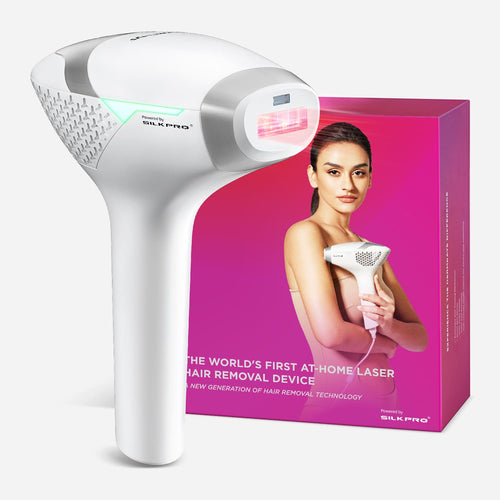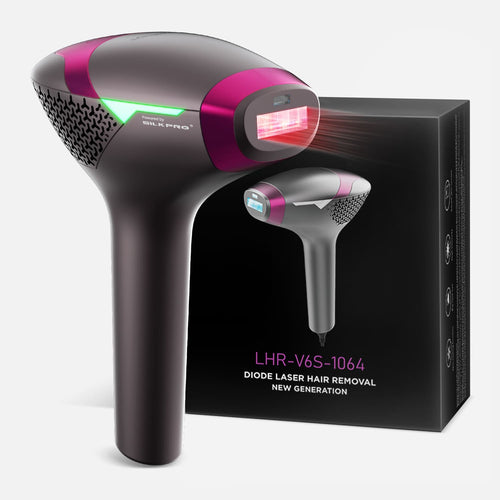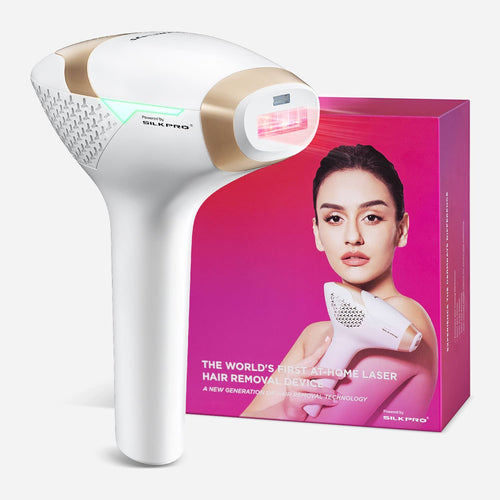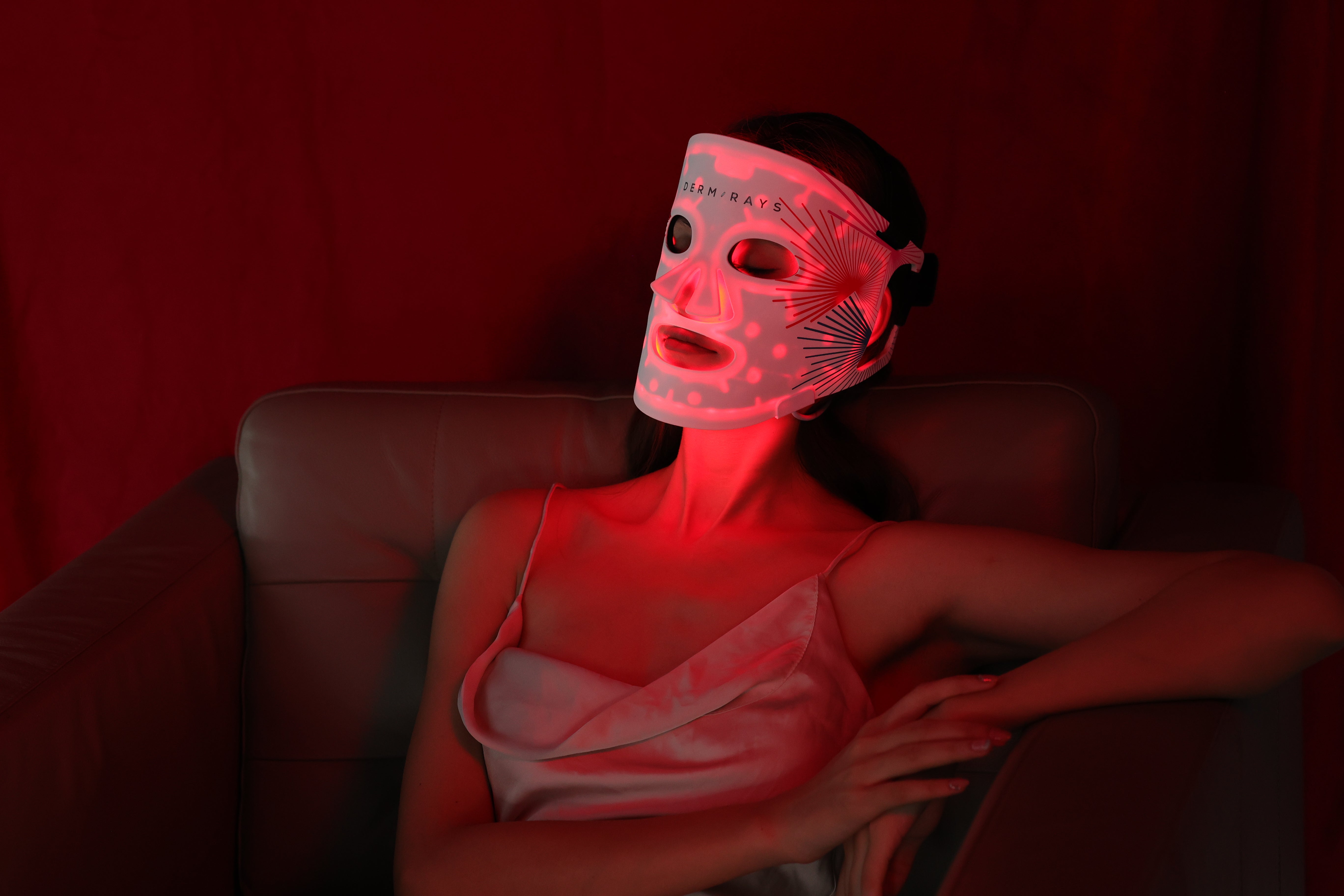Understanding PCOS and Hirsutism
Ovarian cysts, metabolic abnormalities, and hormone imbalances are the hallmarks of polycystic ovary syndrome. Male sex hormones called androgens are typically overexpressed in PCOS-affected women, which can result in hirsutism. The male-pattern distribution of terminal hair growth, which affects the face, chest, back, and abdomen, is a symptom of hirsutism. Polycystic Ovary Syndrome (PCOS) is a condition that is impacted by environmental and genetic variables.
However, the specific etiology of the condition is yet unknown.
In people with PCOS, hirsutism can have significant psychological repercussions, including depression, anxiety, and low self-esteem. While traditional hair removal techniques like shaving, waxing, and threading provide momentary relief, they can cause skin discomfort and take a lot of time. With the advent of laser hair removal as a long-term option, PCOS sufferers can now better control their undesirable hair growth.
Laser Hair Removal Mechanism
Selective photothermolysis is the basis of how laser hair removal works. In this procedure, a focused light beam-usually from an alexandrite or diode laser-is used to target and destroy the melanin in Hair follicles, which are the pockets in our skin where hair grows. The pigment melanin causes the color of our skin: hair and skin. Absorbs the laser energy and turns it into heat-the application of heat damages the hair follicle, preventing the growth of new hair.
Crucially, those with light skin and dark hair respond best to laser hair removal because the contrast between the two colors of skin and hair helps the hair follicles absorb the laser energy. Thanks to developments in laser technology, a wider spectrum of people can now receive the treatment because additional devices have been made that are more adaptable and appropriate for different skin types.
Efficacy of Laser Hair Removal for PCOS
Laser hair removal is an effective treatment for the elimination of unwanted hair, especially hirsutism linked to PCOS, and in a study that was revealed in the Journal of the American Academy of Dermatology, women with PCOS-related hirsutism had a considerably better quality of life and less hair density after undergoing laser hair removal.
Individual differences can affect how well laser hair removal works, and the best results usually take several treatments. Since hair follicles go through cycles of development and rest, the therapy targets actively developing hair. To target hair in different growth phases, many sessions spaced several weeks apart are required. Many PCOS patients find that laser hair removal offers a more durable solution than traditional hair removal techniques, even though it may require several sessions.
Safety Considerations
In general, laser hair removal is safe when carried out by qualified professionals. However, some safety measures need to be followed, particularly for PCOS sufferers who could have underlying medical issues. Before beginning laser hair removal, it is essential to get a complete medical examination and consultation to make sure the procedure is appropriate for the patient.
Key safety considerations include
1. Hair Color and Skin Type:
Due to lesser melanin concentration, people with blonde, gray, or red hair may get less effective outcomes, while those with darker skin tones may be more susceptible to scarring or changes in pigmentation.
2. Hormonal Changes:
Laser hair removal may be less successful during times of hormonal imbalance because swings in hormone levels characterize PCOS. It is recommended that the medication be started while hormone levels are somewhat stable.
3. Medical History:
Diabetes or insulin resistance are two medical disorders that can coexist in people with PCOS. A thorough evaluation of your medical history is necessary to determine any contraindications or possible hazards related to laser hair removal.
4. Post-Treatment Care:
It is crucial to adhere to the post-treatment maintenance instructions given by the laser hair removal specialist. To reduce the risk of problems, this may entail avoiding sun exposure, applying sunscreen, and avoiding particular skincare products.
Psychosocial Impact and Quality of Life
One cannot stress the psychological effects of hirsutism on PCOS patients. Unwanted body and facial hair can cause social distancing, self-consciousness, and feelings of embarrassment. In addition to offering a permanent cure for hirsutism, laser hair removal may improve the quality of life for PCOS patients.
A research paper was published in the Journal of Cosmetic and Laser Therapy and explored the psychosocial impact of laser hair removal on women with hirsutism. The findings indicated a significant improvement in self-esteem and psychological well-being following laser hair removal treatments. Participants reported increased confidence and a reduction in anxiety related to their appearance.
Practical Considerations for Individuals with PCOS
1. Consultation and Assessment:
Patients with PCOS should have a comprehensive evaluation and consultation with a registered practitioner or trained healthcare provider prior to beginning laser hair removal. Reviewing hormone levels, the patient's medical history, and discussing the objectives and goals of treatment should all be part of this evaluation.
2. Treatment Timing:
When hormone levels are pretty stable, laser hair removal may work better. To maximize results, patients with PCOS should talk to their healthcare physician about when to start treatments.
3. Combination Therapies:
Combining laser hair removal with other techniques can sometimes improve outcomes. For a complete strategy for managing hirsutism in PCOS, for instance, a healthcare professional can suggest combining hormonal therapy, like oral contraceptives, with laser hair removal.
4. Post-Treatment Care:
After laser hair removal sessions, patients should follow the aftercare instructions given by the provider. To reduce the possibility of negative reactions, this may entail avoiding direct sunlight, abstaining from specific skincare products, and implementing a mild skincare regimen.
5. Realistic Expectations:
Even though laser hair removal works incredibly well, people with PCOS need to have reasonable expectations. It might not always be possible to remove all hair, and in some cases, maintenance sessions would be necessary to control any regrowth.
PCOS sufferers' general well-being and confidence can be greatly enhanced by laser hair removal, which offers a treatment that goes beyond temporary hair removal techniques. The beneficial effects on mental health and self-worth highlight how crucial it is to take into account both the emotional and physical elements of living with PCOS.
Even though laser hair removal has been successful in treating PCOS-related hirsutism, it's crucial to understand that every person's reaction is different. Variations in hormone levels, skin tone, hair color, and underlying medical issues can all affect how well a treatment works. As a result, honest dialogue with healthcare professionals and setting reasonable expectations are essential steps in the decision-making process.
Furthermore, continued research and technological developments improve laser hair removal methods, increasing the treatment's effectiveness and accessibility for a wider range of people. The range of people who can benefit from this intervention is expanded by the development of equipment that can accommodate different skin tones and hair colors. Those with PCOS should expect even more customized care as dermatology and cosmetic medicine advance.
Conclusion
One useful and practical alternative for PCOS patients looking to control the bothersome hirsutism symptom is laser hair removal. Laser hair removal targets and damages hair follicles using the principles of selective photothermolysis, offering a long-term solution to undesired hair growth. Research studies have demonstrated the effectiveness of this treatment, with many patients reporting a marked improvement in their quality of life and a drop in hair density.
For PCOS patients thinking about laser hair removal, safety factors such as skin type and color, hormone fluctuations, medical history, and after-treatment care are essential. A comprehensive consultation with a licensed practitioner or trained healthcare professional is necessary to determine whether the treatment is appropriate and to address specific issues.











Dejar un comentario
Todos los comentarios se revisan antes de su publicación.
Este sitio está protegido por hCaptcha y se aplican la Política de privacidad de hCaptcha y los Términos del servicio.